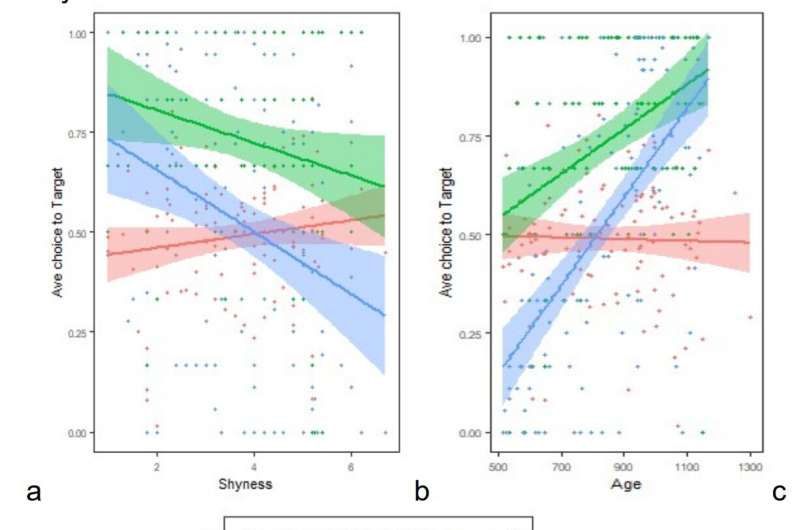This article has been reviewed according to Science X's editorial process and policies. Editors have highlighted the following attributes while ensuring the content's credibility:
fact-checked
trusted source
proofread
Study reveals shyness could impact young children's performance on language tests

A recent study from SMU psychologist Sarah Kucker and a student she mentored at Oklahoma State University suggests shyness can influence a child's performance in language assessments, depending on the level of social interaction required to complete the test.
Shy children tend to be reserved in everyday life, including communicating with others. The study concludes that the behavior can make accurately assessing a child's language abilities more challenging since shy children find it harder to verbally engage with clinicians and teachers than during less socially demanding tests.
The research by Liesl Melnick, now a graduate student at Eastern Illinois University, and Kucker was published in the Journal of Speech, Language, and Hearing Research, and involved 122 children of varying temperaments between the ages of 17 and 42 months.
Each child underwent a series of three language tasks that required different levels of social interaction: a looking task, a pointing task, and a production task that required children to say the answer verbally. In each, the children were asked to find a known object from a set of pictures. The order of tasks was randomized for unbiased results and data was collected through Zoom. Parents reported their child's shyness using an early childhood behavior questionnaire.
The results revealed significant differences in children's performance across the tasks depending on shyness. Shyer children did worse on the production task than their less-shy counterparts. However, all children performed well on the pointing task regardless of their shyness level. The looking task yielded more nuanced results, indicating that shyer children were occasionally more accurate but less likely to respond.
"A child's temperament, especially their shyness, could strongly impact how they will do in language tasks," said Kucker, SMU assistant professor of psychology. "When children are given assessments to evaluate their language abilities, clinicians and teachers should take into account the child's shyness level, perhaps using tasks that are less burdensome for them, such as pointing tasks instead of verbal ones."
Kucker believes acknowledging the impact of shyness will help professionals ensure language assessments are more effective and provide a more comprehensive understanding of a child's linguistic development. Moving forward, she and her team plan to explore the performance of shy and less-shy children on standardized language assessments.
More information: Liesl Melnick et al, The Influence of Shyness on Language Assessment, Journal of Speech, Language, and Hearing Research (2023). DOI: 10.1044/2023_JSLHR-22-00362


















